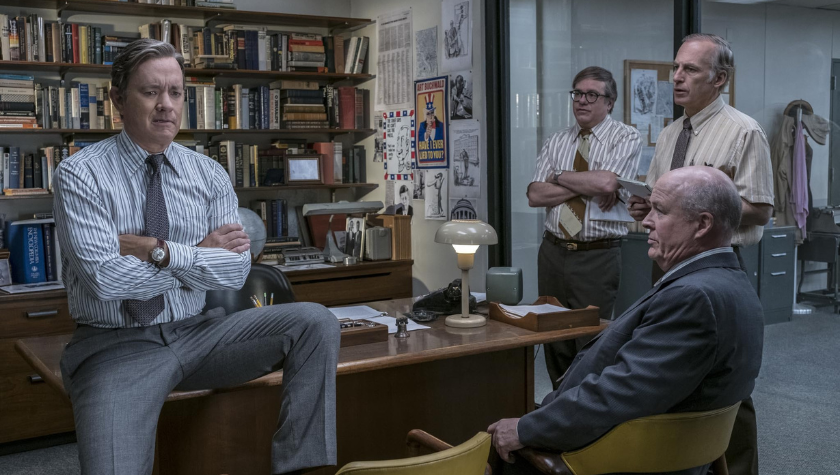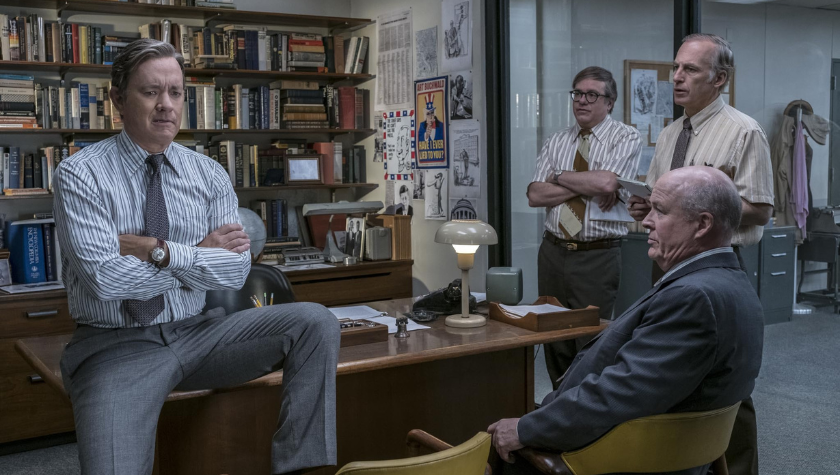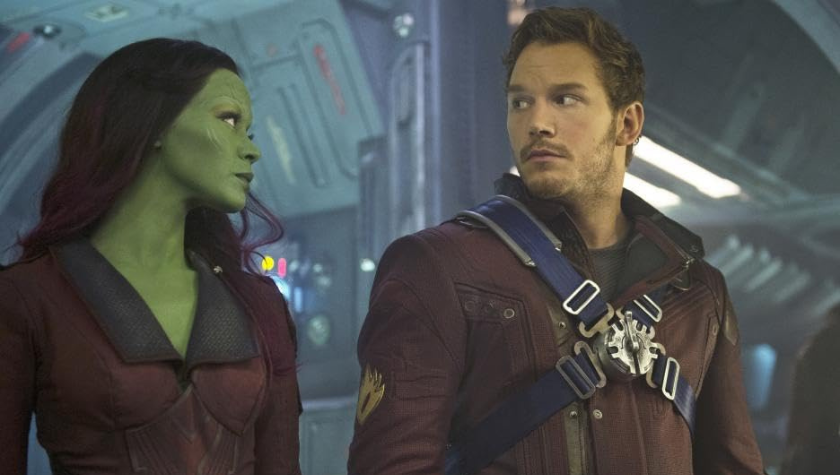Sometimes, you just need to know you’re not alone. That others who’ve been exactly where you are, doing the thing you love doing, made it.
From writers who overcame rejection after rejection to those who found their voice in the most unexpected places, these real-life tales remind us that the art of screenwriting isn’t just about crafting great stories: it’s about perseverance, passion, and the relentless pursuit of a story worth telling.
Here are 5 inspiring screenwriting stories to keep you motivated.


1. Liz Hannah almost gave up screenwriting before selling ‘The Post’
From a 2016 Black List “most liked” unproduced screenplay to it being bought by Spielberg and becoming a 2018 Oscar contender starring Meryl Streep, The Post became more than Hannah’s passion project.
The script stood out from other journalist films for its focus on Katharine Graham. Graham is the first female publisher of a major American newspaper, and The Post tells the tale of how The Washington Post rose to national powerhouse from local paper thanks to the Pentagon Papers scandal. Catching the attention of Sony and writing partner Josh Singer, Hannah’s project stood out from the slush pile through the way she connected her audience to the story through the human related element.
But The Post almost didn’t happen. Hannah nearly gave up on screenwriting, plagued by the same nagging doubts many writers face: Am I really good enough? Should I keep going? A failed attempt to get into the Warner Bros. writing program only added to the discouragement. But it was Katharine Graham herself who ultimately drew Hannah into the story.
“Katharine Graham was an incredible woman and had an extraordinarily relatable story to men and women. I don’t think you have to be a woman to know what it feels like to be excluded or outnumbered or feel like the outsider. Although I heavily related to it from that perspective, I think a lot of people connected with that feeling of wanting to be in the room and not necessarily being allowed to get in there,” she told Film School Rejects.
Hannah’s advice to keep you motivated? “You only get better if you get through the drafts and the bad stuff. Write about what you’re passionate about. I think it’s important to not write about what you think is trendy or what you think people are buying. Those things change by the minute. I really believe that if you write about what you’re passionate about, it means people who are passionate about the same thing come to you, find you, and share the same passion. Be passionate, be patient, and keep writing.”
2. Anna Klassen successfully transitioned from writing about movies to actually writing movies
Another screenwriter who started her path to success with a biopic script is Anna Klassen. In 2017 her When Lightning Strikes script about J.K. Rowling landed on the Black List and she won the ScreenCraft Fellowship with a different dramatic pilot, both of which led to getting repped.
Winning comps since she was 10 with her stories, Klassen swears by outlines before going to draft. “An outline is also my insurance policy against writer’s block. Even on days when I don’t feel compelled to write, I can refer to the outline and produce a rough version of what my more motivated past self envisioned, because bad writing is always better than no writing,” she told Final Draft.
Klassen spent evenings and weekends working on those outlines and scripts, while her journalism day job kept Klassen with a foot in the industry she wanted to be a part of as Entertainment Editor for Bustle. Previous to that, she also held numerous editorial roles at BuzzFeed, Newsweek and The Daily Beast, FLUX Magazine and Ethos.
Her advice to keep you motivated: “Read scripts and watch movies. Specifically, read a script and then watch the movie of that script to see what changed from page to screen. As someone who didn’t go to film school and has no professional screenwriting training, I learned everything I know by reading scripts to understand format, tone, themes, etc., and watching movies. Also, don’t be a one-hit wonder. Always have more than one great script in your pack pocket. One script will get you in the door, but the second will make you hireable.”
3. Brian Duffield was working in a factory when he sold his first spec
Three of Duffield’s original screenplays have made the Black List: Your Bridesmaid is a Bitch (2010), Jane Got a Gun (2011), and The Babysitter (2014). His big industry break was penning The Divergent Series: Insurgent. But Duffield is still waiting for a call from the Jurassic Park people; the original Spielberg dino vehicle was his seminal introduction to movies, right before his missionary parents moved the family to rural Ireland where seeing movies was as much of a pipe dream as writing them.
But write them Duffield did, trying hard to cling to the dream while working temp jobs that may’ve been boring, but were “9-to-5” enough that he still had the energy to write and make connections.
“I was so severely broke and miserable working temp jobs. I was able to move into writing full-time and get out of the hole,” Duffield has said in a 5AM StoryTalk interview.
His advice to keep you motivated from this interview: “Sometimes you win and sometimes you lose. I’ve pitched something three times and ended up not getting the job. It’s the same as being a contractor in any field. That’s just life. So, I would rather concentrate on being good people.”


4. James Gunn was paid just $150 for the first script he ever wrote
It’s hard to imagine now, but James Gunn has been both underpaid and fired in the past. Today, he's known for writing major blockbusters across the MCU and DCU, and he currently serves as co-CEO of DC Studios—sharing an office (and a wall emblazoned with Superman’s iconic “S”) with Peter Safran. But Gunn’s path to the top wasn’t exactly conventional. He once fronted punk bands, drew comic strips for alt-weeklies, acted, and performed monologues in dive bars. He earned an MFA from Columbia and even published a gritty early-2000s debut novel, The Toy Collector. His break into screenwriting came when Lloyd Kaufman, co-founder of cult B-movie studio Troma Entertainment, paid him $150 to write Tromeo and Juliet. The rest, as they say, is history.
From there, it was a hop, skip, and a Scooby Doo (or two) script to Marvel’s Guardians of the Galaxy, which catapulted his career into the multiverse. As with Hannah’s The Post, it’s Gunn’s deeply personal approach to characters that pull the audience in through empathy.
Thanks to Gunn also getting… “personal” on Twitter, he was temporarily fired by the MCU which allowed the DCU to snap him up. During his screenwriting journey, he’s moved from being mostly provocative, to mostly sentimental, and it shows in his stories we see on screen.
His advice to keep you motivated: “You just be present and be yourself and show that natural vulnerability that’s a part of who you are as a human being. And for me the whole [secret] was finishing whatever I started.”
5. The writers of Oscar nominee ‘Sing Sing’ were formerly incarcerated
In 2005, the Rehabilitation Through the Arts (RTA) theatre program for incarcerated men at New York’s Sing Sing Correctional Facility staged “Breakin’ the Mummy’s Code”. A decade later, the musical is the backdrop for the Oscar-nominated film Sing Sing starring Colman Domingo as the real-life John “Divine G” Whitfield. Whitfield spent nearly 25 years behind bars on a wrongful homicide conviction, as well as being an active member of the RTA.
Director/co-writer Greg Kwedar, along with Clint Bentley, his longtime co-writer, learned about the program after finding a 2005 Esquire article by John H. Richardson titled “The Sing Sing Follies” and was instantly drawn into the “full human experience” intrinsic to “Mummy’s Code”, as well as how, where, and by who it was staged.
Whitfield and Clarence “Divine Eye” Maclin, who spent 17 years at Sing Sing for robbery, felt the sincerity in Kwedar and Bentley’s efforts to bring the story to life, which is why they agreed to the writing team bringing their story to life. Whitfield and Maclin also received story credits on the film in addition to Maclin’s best supporting actor Oscar nod for his big screen debut.
Thanks to Sing Sing’s reception at the Toronto Film Festival and its Oscar nominations, Maclin is feeling like Hollywood isn’t such a far off dream, while Johnson told USA Today, “For so many years, we’ve been trained to think that the world is not interested in the formerly incarcerated.” But ultimately, this is a movie “about people. We all go through things. The human spirit is so strong, and we all have our breaking points.” Finding connection in sharing those stories is what it’s all about.
So keep writing, especially when it feels hard, when the words don’t come out right, when doubt creeps in. Every page, even the messy ones, is sharpening your craft. Be aware of your industry, genre and predecessors, but not defined by any of them. Be you, but don’t let your past define or control you; instead channel it into your dreams.
Finish what you start. And above all, all together now: Keep Writing.

